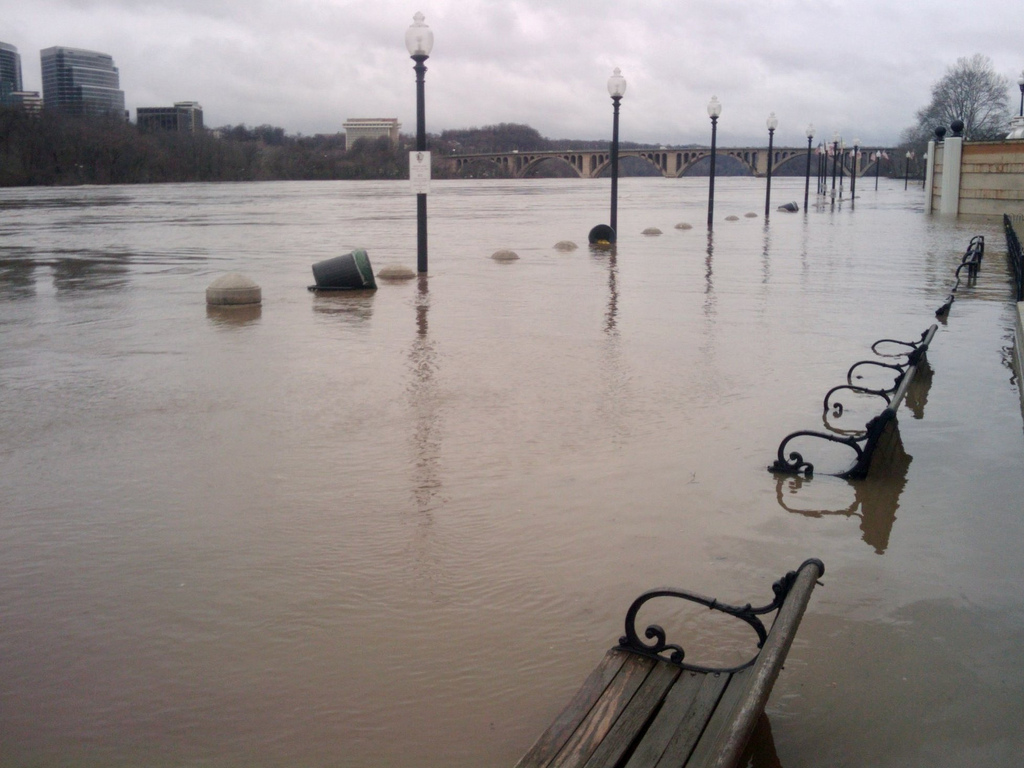Must We Perish?: Infrastructure and Climate Change
 The Fourth in a Series on Infrastructure Justice
The Fourth in a Series on Infrastructure Justice
In the poetic lyricism of the King James Bible, Proverbs 29:18 tells us, “Where there is no vision, the people perish.” The urgent truth and relevance of that statement is perhaps nowhere more visible than the question of how our nation envisions its future with regard to infrastructure and climate change. Yet, I suspect that statement would seem dubious to some for the simple reason that no one seems to be discussing it. Op-ed pages, television newcasts, and political stump speeches have little to nothing to say on the subject. For this reason, let me make the case as direct and as plain as I can in five points:
- Climate change is already impacting our nation’s infrastructure. Those involved in disaster relief see this playing out before them right now. Whether it is washed out bridges or power outages, the effects of climate change on our infrastructure are evident as flooding and extreme weather become more frequent.
- The impact of climate change on infrastructure greatly exacerbates inequality. When it comes to a neighborhood’s infrastructure in the face of a severe weather event such as a hurricane, vulnerability and rebound-ability reflect pre-existing inequalities along the lines of race and class.
- In terms of cost and damage, climate change is going to have a far greater impact on the nation’s infrastructure in the future. As “100-year” floods and heat waves become more frequent and as rising sea levels threaten coastal areas with permanent flooding, the physical and financial costs to our nation’s infrastructure will dramatically rise. Despite this, Mitchell Hartman reports that “there is little coordinated planning and funding” to address the climate threats posed to our infrastructure.
- To lower future costs and reduce future human suffering, we should be investing in a clean energy infrastructure now. In a commentary entitled “The U.S. Is Badly Underinvesting in Electricity Infrastructure,” David Roberts notes that the transition to renewable energy will require substantial investment in not only clean energy generation but also in long-distance transmission and smart distribution grids capable of effectively handling the new energy.
- Failure to make the right plans and investments now locks our nation into a high carbon future. Luis Alberto Moreno and Nicholas Stern make this clear in a piece entitled “Smart Infrastructure Is the Key to Sustainable Development.” Instead of investing in highways, we can invest in public transportation. Instead of planning for suburban sprawl, we can plan for more compact cities. Instead of building fossil fuel power plants with 50-year life spans, we can build solar and wind farms.
Our infrastructure investments now will determine the quality of our future. The moral imperative of the moment is to cast a vision that will awaken and mobilize our society to this urgent need. Otherwise, people will perish, and it will be from a threat that we not only saw coming, but that we knew had already arrived. The ancient proverb states a timeless truth, and it is a truth that is especially pertinent to our time. Let us heed it.
The Rev. Dr. Brooks Berndt is the UCC’s Minister for Environmental Justice. Follow him on Twitter at @The_Green_Rev.
Related News
Walking the Talk: Environmental Practices and a Commitment to Justice
St. James United Church of Christ in Hamburg, New York (a suburb of Buffalo) has been...
Read MoreThe Antidote to Power from Above
With its themes of moral reckoning and repentance, this Lenten season brings into stark relief...
Read MoreDon’t Incinerate – Innovate!
Thirty-eight years ago, the United Church of Christ's Commission for Racial Justice released a...
Read More


